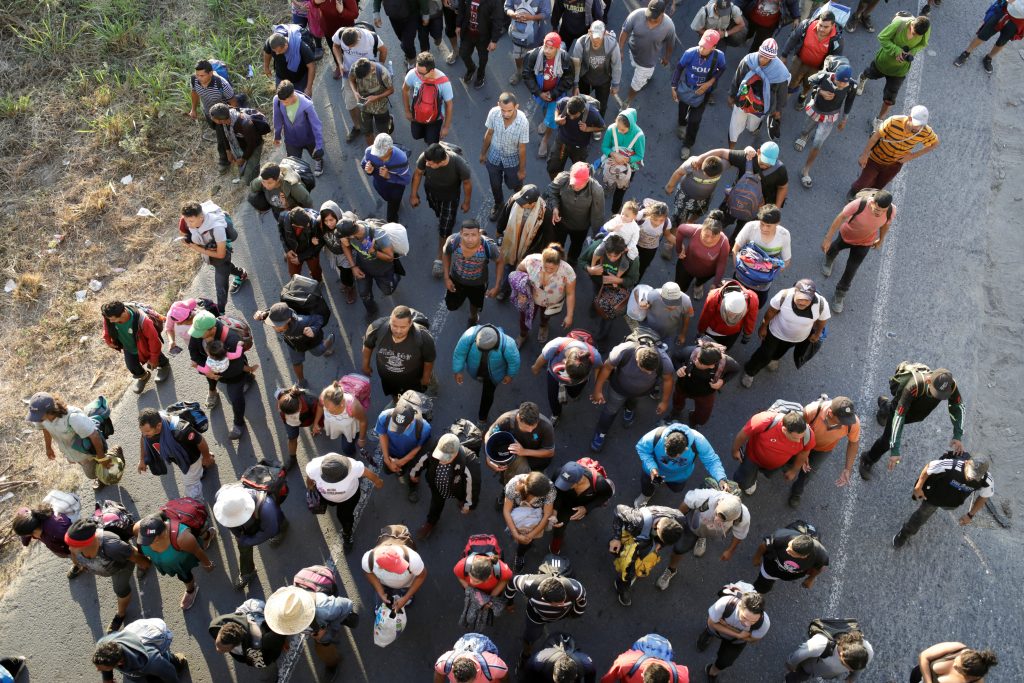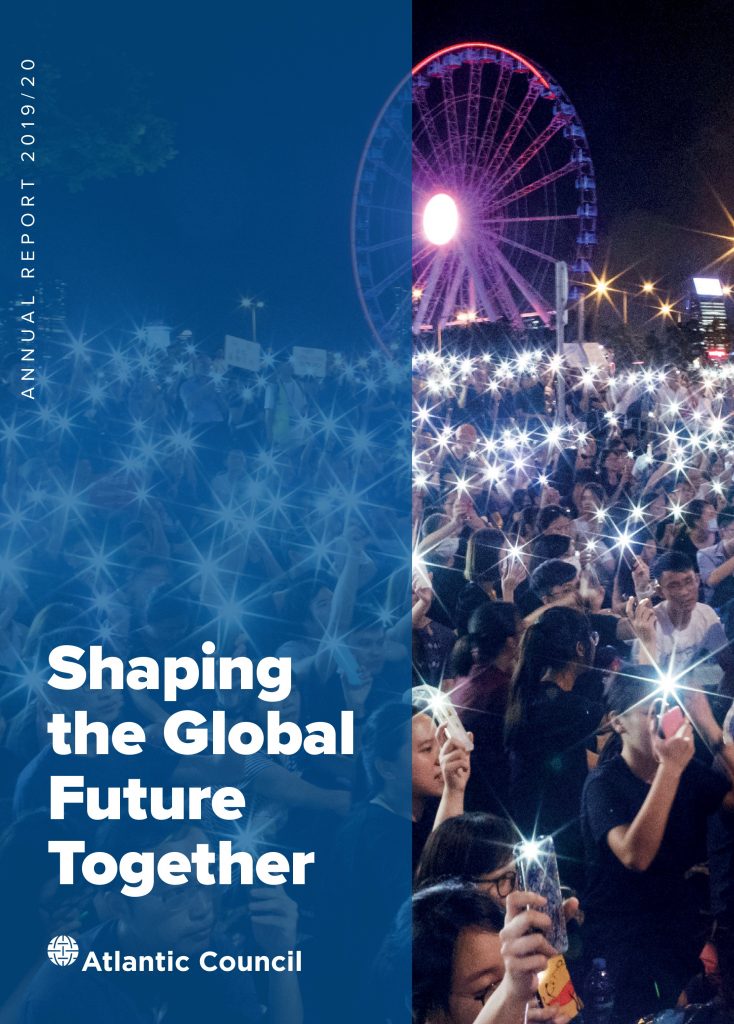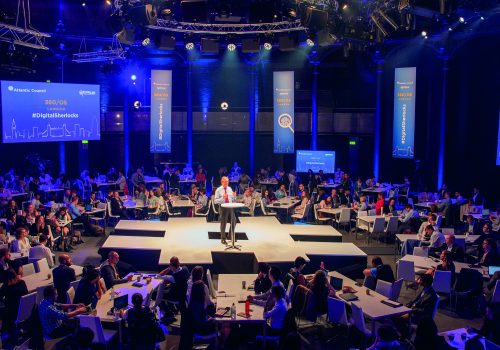Adrienne Arsht- Rockefeller Foundation Resilience Center
The Adrienne Arsht-Rockefeller Foundation Resilience Center will reach one billion people with resilience solutions to climate change, migration, and human security challenges by 2030. We focus our efforts on people and communities to help them better prepare for, navigate, and recover from shocks and stresses. We will help build a more resilient world.
The Adrienne Arsht-Rockefeller Foundation Resilience Center will reach one billion people with resilience solutions to climate change, migration, and human security challenges by 2030. The center will help build a more resilient world by focusing its efforts on people and communities to help them better prepare for, navigate, and recover from shocks and stresses.
Description of center work for 2019
The Resilience Center will reach this goal by deploying a range of evidence- based and innovative approaches, including policy frameworks, scalable community interventions, finance and risk tools, and technology and communications, including the performing arts. Leveraging the council’s intellectual strength, global reach, and nearly sixty years of measurable global public policy impact, the Adrienne Arsht-Rockefeller Foundation Resilience Center will trans- form ideas into action.
The center’s metric for resilience is “additionality.” When the center makes people more resilient, it has provided a new and durable knowledge set, skill, or layer of protection (either seen or unseen) over a person or group of people, that person or group are considered resilient.
In May, the Resilience Center, led by Kathy Baughman McLeod, announced its first community partner as Miami-Dade County, with which the center will partner on resilience solutions for at least three million residents of the county, with the potential to be scaled throughout South Florida.
In July, the Resilience Center established relationships with five additional cities: Athens, Chennai, Melbourne, Mexico City, and Paris. Building on the resilience strategies these cities developed through 100 Resilient Cities, a program of the Rockefeller Foundation, the center identified extreme heat as a key challenge and began building partnerships to craft interventions
cities could implement to reduce their vulnerability to this climate and public health threat.
The Resilience Center continued its focus on extreme urban heat later in
the year by co-hosting a convening with the Rockefeller Foundation at its Bellagio Center centered on this deadly global hazard. Extreme heat is creating an unprecedented public health emergency and profound economic disruptions.
In response, more than thirty leading experts from city government, climate finance, disaster preparedness, risk and insurance, health, and science gathered to design a finance and risk facility for protecting people and communities from extreme heat. The aim of the facility is to prepare cities for extreme heat events, as well as cool and increase livability for future high temperatures.
At the Atlantic Council’s annual Global Citizen Awards dinner held in New York City, Adrienne Arsht, Atlantic Council executive vice chair, announced Anna Deavere-Smith as the Council’s first-ever “Artist-in-Residence”, sitting within the Resilience Center. An actress, playwright, teacher, and author, she will lead a project called Stories of Human Resilience, in which she will conduct interviews to capture people’s journeys to becoming resilient. She will then perform these stories through her interpretation.
Preview of center intentions for 2020
Given that 2019 was the second-hottest year on record, the center will carry on its initiative to prepare cities for extreme heat. By building on an established evidence base, it will seek to help cities finance and scale interventions and catalyze resilience policy approaches.
In 2020 the Resilience Center will launch an urban horticulture program with Chennai, India, a resilience solution that could potentially reach up to three million people in the city, most of whom live in slums and settlements. This effort will reduce heat exposure among at-risk populations, promote healthier youth through better nutrition, increase economic independence and pros- perity among women, build greater social cohesion, and enhance overall community resilience.
Through a partnership with the Weather and Climate Risks Group at ETH Zurich, the Resilience Center will expand and adapt the existing “Economics of Climate Adaptation” (ECA) methodology that will allow governments and institutions to more rapidly identify cost-effective climate adaptation measures, and as a first of its kind, will consider gender, biodiversity, and social vulnerabilities. Once developed, the center and its partners will begin applying the Rapid Economics of Climate Adaptation (RECA) tool to assess projects such as infrastructure investments for coastal protection, and policy interventions for disaster risk reduction.
As a centerpiece of its strategy to tackle migration challenges, the Resilience Center will partner with the International Federation for Red Cross and Red Crescent Societies (IFRC) to scale and add capacity and tools to Humanitarian Service Points (HSP)—safe, neutral centers that provide
a welcoming environment for vulnerable migrants and displaced communities. HSPs will facilitate access to essential services (such as aid, food, water, shelter, and psycho-social support). In tandem, mobile relief hubs connected to the HSPs will allow for continuity of services as migrants move through their journeys. With an initial concentration on the Venezuelan crisis, the Resilience Center will work with local Red Cross and community volunteers helping migrants in Colombia and elsewhere in the Americas.

The center will launch the Climate & Migration Dialogue Series, which
will promote a positive narrative around migration, refugees, and other displaced populations as valuable contributors to society. These discus- sions will feature top experts via virtual and in-person events and podcasts, sharing new research and firsthand accounts of migrant experiences.
It will also explore cutting-edge initiatives to combat xenophobia and improve perceptions around migration and build greater social inclusion for refugee and host communities.
To build the increasingly necessary skills to become more resilient in the
face of climate change and extreme events, the center is partnering with
cities and communities around the world to deploy Community Resilience Pods. The first mobile prototype, a transformed 40-foot shipping container donated by MSC (Mediterranean Shipping Company) Foundation, to be deployed in Miami-Dade County in 2020, was designed in collaboration with world-renowned architects and local artists. These mobile assets will educate on personal, location-specific risks and empower people and communities to prepare for and confront climate, migration, and public health crises by sharing tools, guidance, and actions to be taken at the individual and community levels.
Next:
Read the full report:

Annual Report 2019/2020
John FW Rogers, Chairman of the Atlantic Council, and Fred Kempe, CEO and President, explain how our past year’s performance, and a dozen years of growth and innovation, helped position us for the historic disruptions of 2020. Read the full introduction.
Image: Image: Residents gather to fill empty containers with water from a municipal tanker in Chennai, India, June 25, 2019. REUTERS/P. Ravikumar



